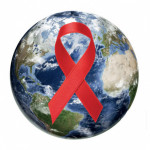Switching people with HIV from a three-drug antiretroviral (ARV) regimen to treatment with Tivicay (dolutegravir) alone raises the risk of viral rebound to an unacceptable extent, aidsmap reports. Consequently, researchers have argued that switching individuals to Tivicay monotherapy—treating the virus with just that ARV, instead of with standard combination therapy—is unethical because of safety concerns.
Presenting their findings at the International AIDS Conference in Amsterdam (AIDS 2018), French researchers from the MONCAY study enrolled 158 HIV-positive adults with a fully suppressed viral load thanks to Triumeq (dolutegravir/abacavir/lamivudine) treatment who had never had an AIDS-defining illness or a lowest-ever CD4 count below 100.
The participants were randomized to remain on triple-drug treatment with Triumeq or to receive Tivicay monotherapy—a respective 80 and 78 participants were put on each treatment.
The study looked primarily at the difference in viral suppression rates between the two groups after 24 weeks of treatment: 96 percent of those on Triumeq had a viral load below 50 at this point, compared with 94 percent of those on Tivicay monotherapy. By this point in the study, two of those on monotherapy had experienced virological rebound—meaning a viral load above 50—compared with no one in the triple-drug therapy group.
After an additional 24 weeks of treatment, another five members of the monotherapy group experienced virologic rebound; two of them developed new viral mutations associated with resistance to integrase inhibitors. (Tivicay belongs to that class of ARVs.) This led the study’s data and safety monitoring board to stop the study.
To read the aidsmap article, click here.
To read the conference abstract, click here.
To download the conference slides, click here.







Comments
Comments